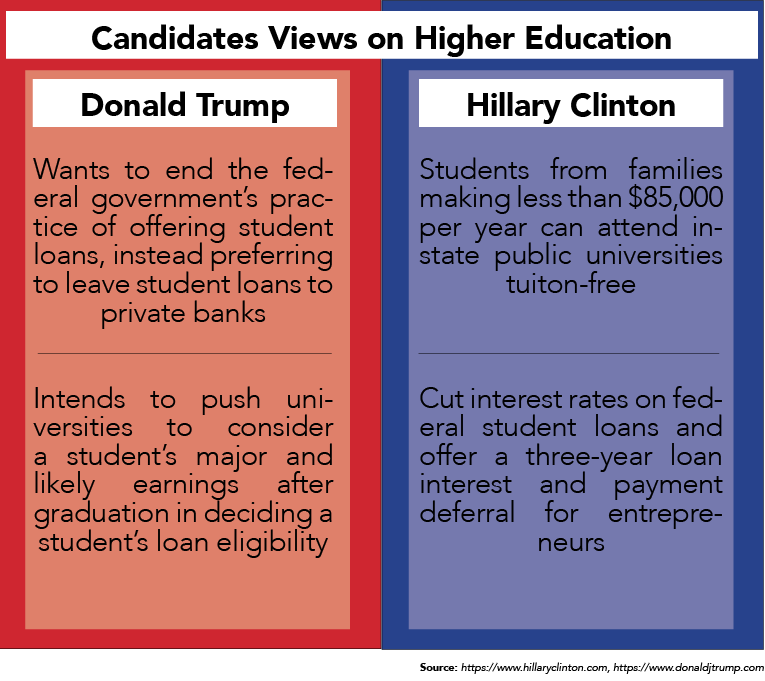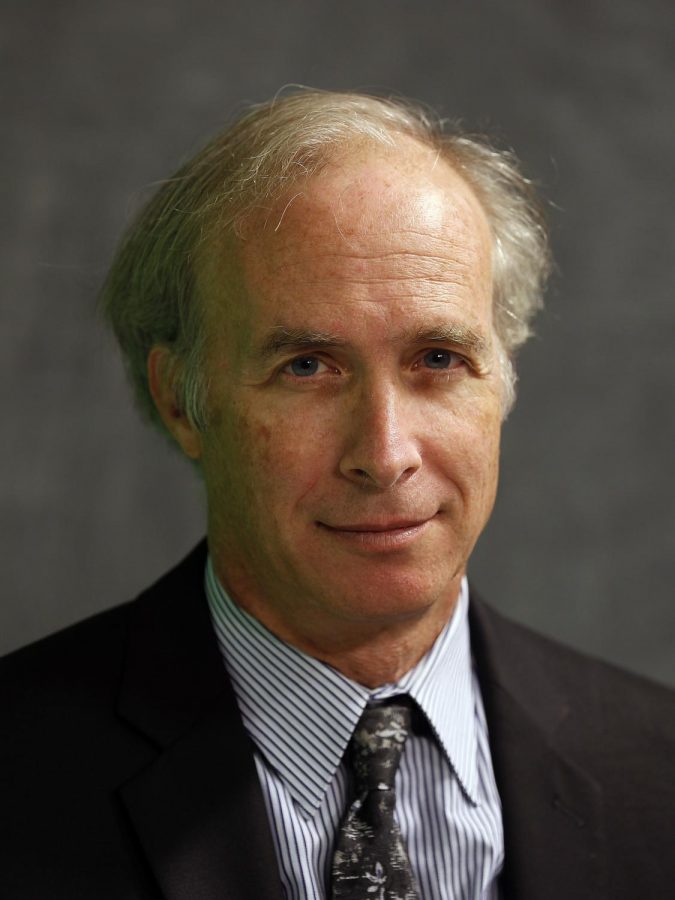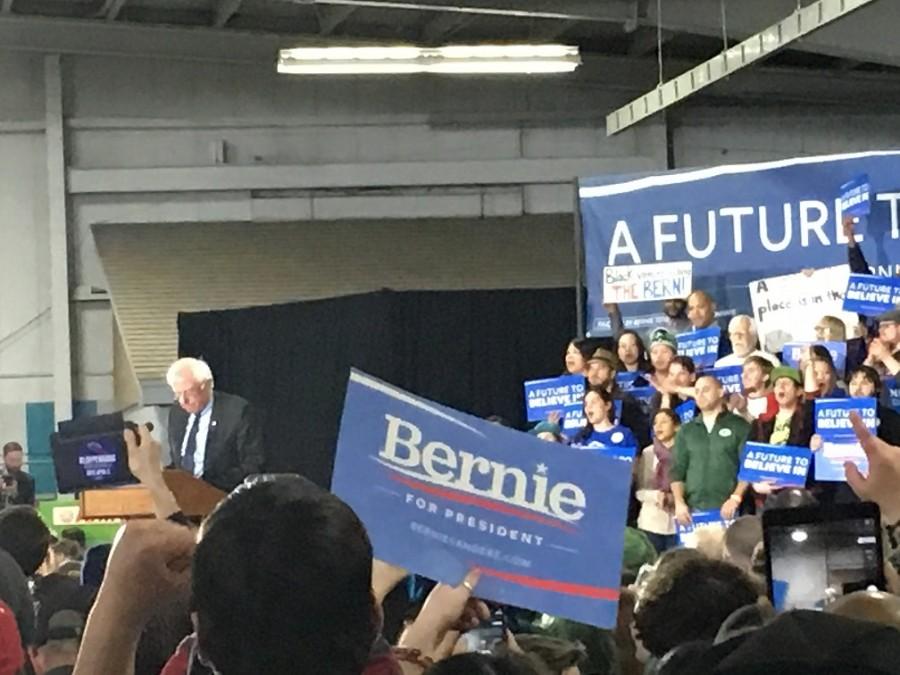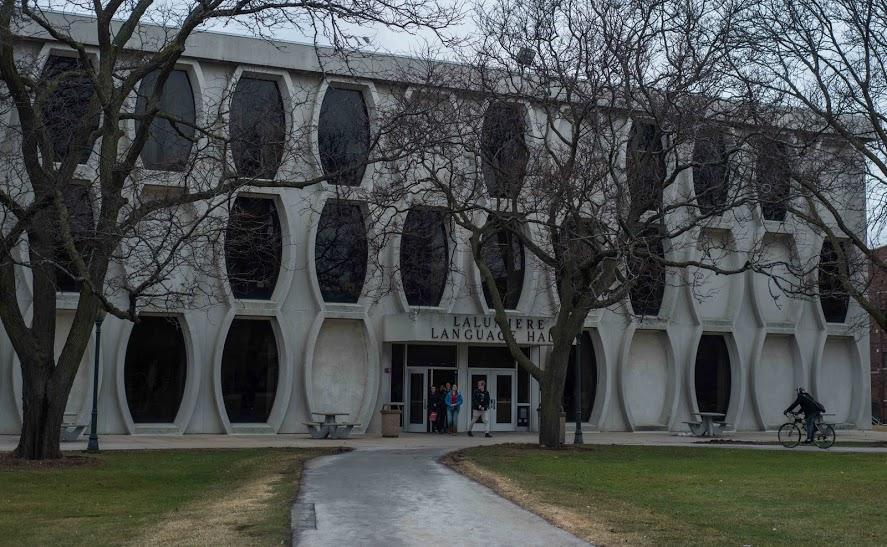With the presidential election looming, candidates Donald Trump and Hillary Clinton are traveling the country, promoting their substantially different platforms to combat the rising cost of higher education and reduce student loan debt for college students.
More than 70 percent of college seniors in the United States graduated with student loan debt in the past few years, according to The Institute for College Access & Success, with the average amount owed at $30,000.
Clinton, the Democratic nominee, lists a plan on her campaign website in which students from families making less than $85,000 per year can attend in-state public universities tuition-free. By 2021, it would expand to include families making less than $125,000 per year.
“It sounds like a good idea in principal, but that money has to come from somewhere,” said Ryan Olson, a senior in the College of Business Administration.
Clinton’s website says the tuition-free plan will be fully paid for by “limiting certain tax expenditures for high-income taxpayers.”
Clinton also plans to cut interest rates on federal student loans and offer a three-year loan interest and payment deferral for entrepreneurs. She also intends for community colleges to offer free tuition, a proposal which Republican nominee Donald Trump rejects.
Trump lists no proposals for higher education reform on his campaign website. Despite his lack of input, domestic policy adviser and Trump campaign co-chair Sam Clovis said in an interview with Inside Higher Ed that Trump wants to end the federal government’s practice of offering student loans, instead preferring to leave student loans to private banks.
Clovis also mentioned Trump’s intention to push universities to consider a student’s major and likely earnings after graduation in deciding a student’s loan eligibility.
Some students, such as Crystal Audi, a senior in the College of Arts & Sciences, think that Trump’s proposal would discourage some students from majoring in areas they are interested in because they would be less eligible for student loans.
“It is blatantly wrong to withhold loan assistance from students who are pursuing their passions,” Audi said. “(Trump’s) plan would lead to fewer students majoring in liberal arts, which include fields that contribute highly to society, even if there are fewer jobs.”
Timothy P. Maga, an adjunct instructor of political science and a former legislative director in the U.S. House of Representatives, said it is important to acknowledge that there are “obvious differences between campaign proposals and proposed legislation.”
Maga continued,“I have no idea how one would base precise, working law on somebody’s ‘likely’ earnings,” Maga said. “The proposal needs further thought and definition.”
Maga also stressed that he believes the United States can learn a lot about higher education reform from other countries.
“There are a number of our democratic allies overseas who maintain stronger legislative commitments to higher education access than the United States,” Maga said. “Although it is often politically incorrect in the United States to suggest that other societies ‘do it better,’ there are interesting precedents worth studying.”








